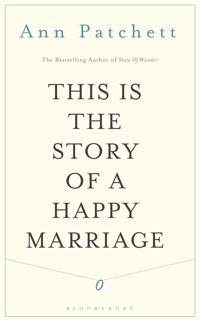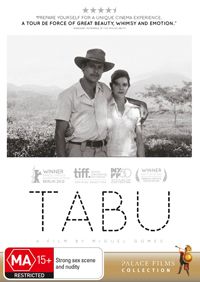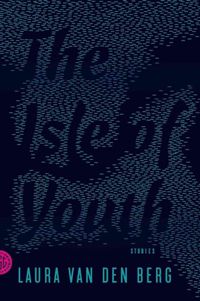Each week we bring you a sample of the books we’re reading, the films we’re watching, the television shows we’re hooked on or the music we’re loving.

I’m about halfway through Patchett’s book of essays at the moment, and this reminds me why she’s one of the few authors whose new works I will seek out immediately upon publication.
These essays range from an expansive summary of her writing career to date (I’m envious of the teenagers whose lives she assisted when she wrote for Seventeen ), to watching live-streamed New York City opera from a movie theatre in Tennessee, to driving an RV across the United States, to learning how to throw herself over a wall so she could pass the LAPD’s exam.
If these stories were told by anyone else I wouldn’t be interested, but when Ann Patchett writes something - I read it. And I’m never anything but thrilled by her every word.
by Miguel Gomez
Having screened to great acclaim at countless international film festivals – including Berlin, Hong Kong, Karlovy Vary and New York, to name but a few – Tabu is now available on DVD and it absolutely lives up to the many five star reviews its received along the way. The story is told in two parts: starting with the end in ‘Paradise Lost’ and returning to its beautiful beginnings in ‘Paradise’. Splitting the story so dramatically in half, director Miguel Gomez expertly crafts a journey from contemporary upper middle class lifelessness into a great sweeping romance lost somewhere in the distant colonial past of Portuguese-speaking Africa.
The first section, ‘Paradise Lost’ tells the story of two lonely women living next door to one another. Forgotten and ignored by the younger generation they look to for vitality and vicarious adventure, Pilar and Aurora go through the motions of daily life aided by deadpan wit and interrupted only occasionally by bouts of undue hysteria. The second section is set in colonial Africa and told through gravelly voice-over narration. Presenting the past as if it were a work of silent cinema, Gomez frames the epic love story at the heart of this film as if it were a lost artefact, recoverable only through the collective experience of storytelling.
A nostalgic gem for great romantics and fans of the silent film era alike, Tabu is the perfect companion to an overcast, rainy afternoon indoors.
In 2011 I read Laura van den Berg’s What The World Will Look Like When All The Water Leaves Us and fell in love with her stories and characters. And now her second short-story collection has been released in America (be still beating heart), a continuation of the ideas and issues she’d explored in What The World.
Opening with a honeymoon gone awkwardly, painfully awry (‘I Looked for You, I Called Your Name’) and closing with the titular story (‘The Isle of Youth) in which the protagonist finds herself agreeing to impersonate her twin sister for a few days, here are are noirish stories of women lost in their lives and harbouring notions of escape. Even while situations and settings transform drastically, from Paris to South Florida, from shoplifting to attending an underground acrobat party, the key questions for these women remains the same: Is this what my life is? And where do I get off?
Van den Berg’s women are frequently dishonest, not so much unwilling as unable to communicate what they want. What struck me most in these stories was her portrayal of that very particular blend of restlessness and passivity that comes with feeling trapped yet not sure what would be better, with wanting to leave but feeling paralysed by choice, or what might feel like no choice at all. In the story 'Lessons’ a group of cousins have busted out of their protective childhood and plunged head-first into a cross-country crime spree. In an attempt to explain their reasoning for this the main character says: ‘Why didn’t they go to school and get regular jobs and get married and live in houses? The short answer: they are a group of people committed to making life as hard as possible.’
Populated with estranged siblings and absent parents (in what I think might be my favourite story (‘Opa-Locka’) a pair of sisters turned private detectives are baffled by a mysterious stakeout which reminds them of their own father’s criminal past) The Isle of Youth is also an exploration of how our relationships to family can define us. It’s quite simply, wonderful and if you like short stories (especially if you’re a Lorrie Moore fan) this is a book to try.




